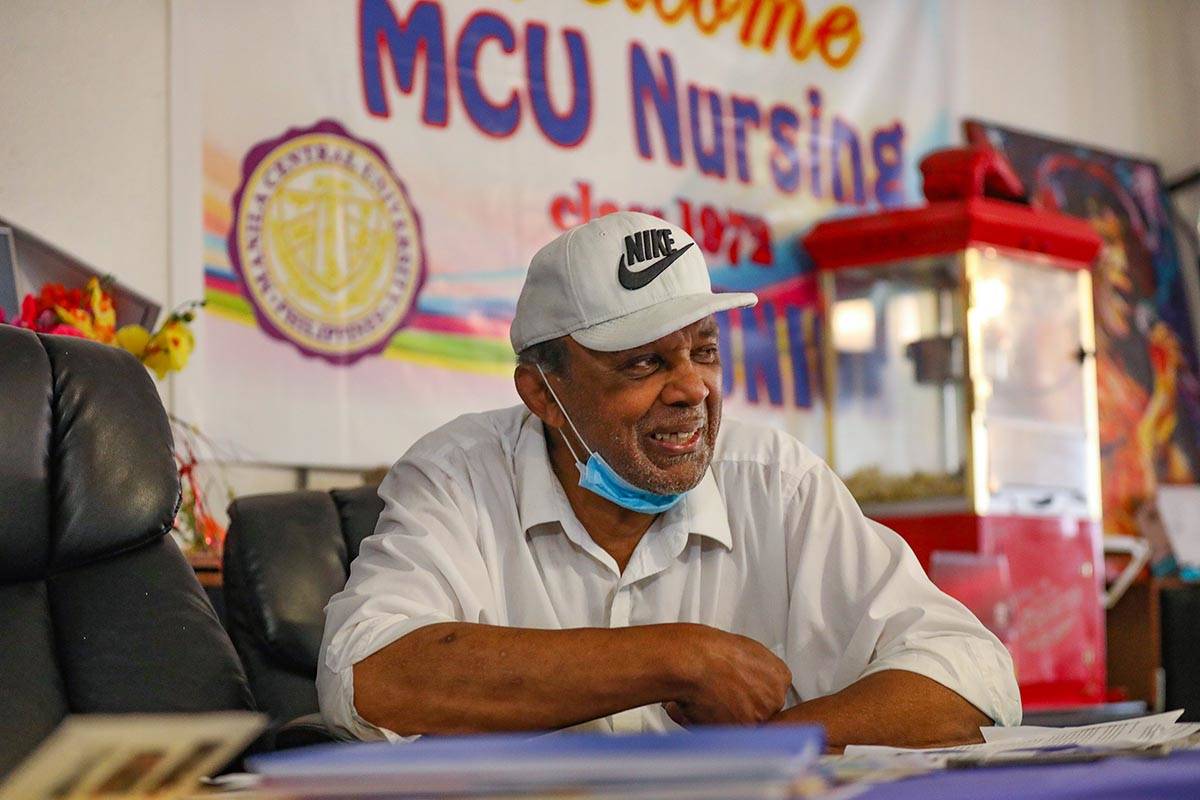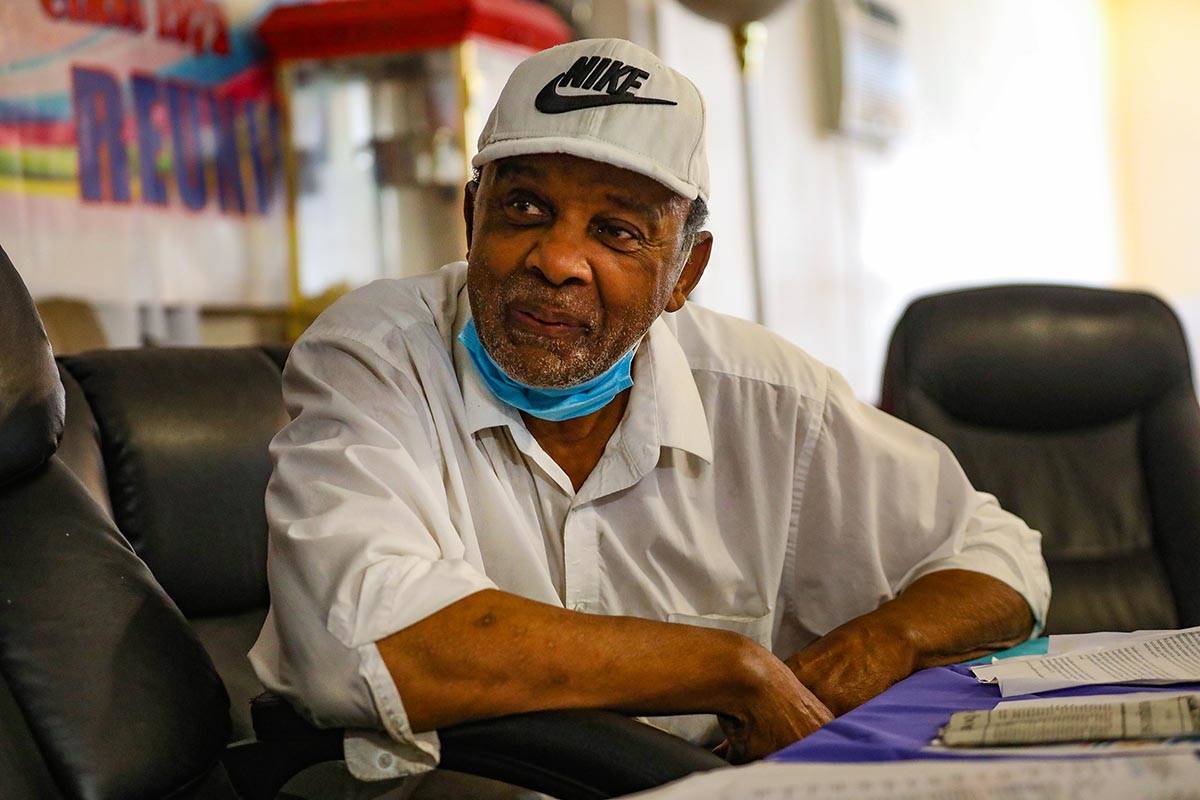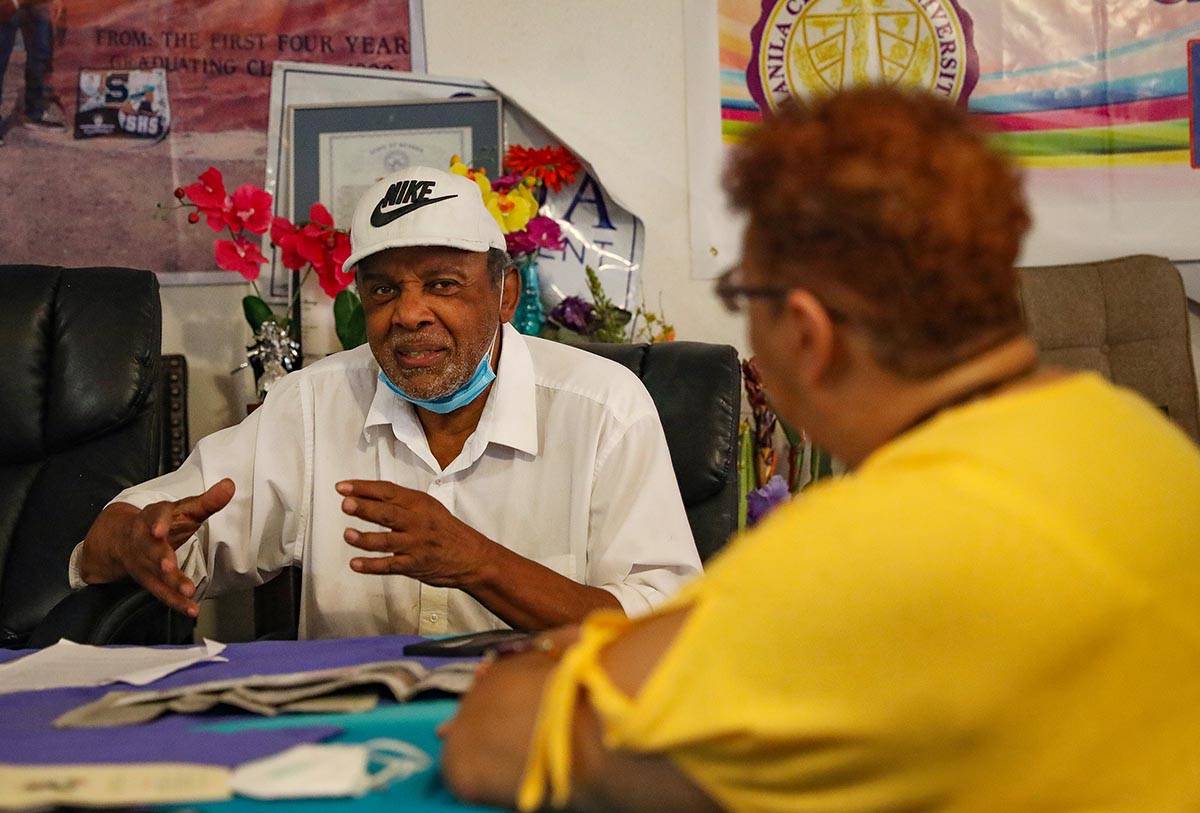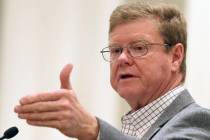Decade after Nevada bill, Juneteenth ‘is going to free the world’
With the passage of a state law 10 years ago, Nevada began officially observing Juneteenth, memorializing the end of slavery in the United States.
Former Nevada Assemblyman Harvey Munford, the 2011 bill’s primary sponsor, recently recalled that he was “excited” to introduce the legislation.
As a local educator for more than three decades, he had been particularly struck by the prospect that Juneteenth Day could serve as a long-term teaching tool.
“We should know the true history of America,” he said.
Juneteenth, which is now formally recognized in 49 states and the District of Columbia, commemorates June 19, 1865. It is when remaining slaves in Galveston, Texas — a state defying the end of enslavement ordered by the Emancipation Proclamation nearly three years earlier — were notified of their freedom by Union soldiers.
For advocates, such as Munford, 80, Juneteenth extends beyond recognition of a historical moment. It is a movement that calls for year-round education about the broad and personal experiences of African Americans in the U.S. and the celebration of their freedom and achievements.
“You have to know where you’ve been to know where you’re going,” said Dee Evans, a prominent statewide advocate. “And Juneteenth kind of illustrates that.”
Evans, the founder and CEO of Juneteenth Nevada, one of many state-based affiliates of the National Juneteenth Observance Foundation across the country, first approached Munford in roughly 2006 about officially recognizing the day in Nevada.
The legislative advocacy did not end there; Evans had been part of a lengthy push to make Juneteenth a federal holiday. President Joe Biden signed a bill Thursday doing just that.
“It was time for it to happen, so we got it,” Evans said afterward, adding that she believed the movement would only continue to grow.
Munford described the signing as “a great day for social justice around the country.”
“We need people to understand that Juneteenth is for everybody,” Evans said during an interview in May. “1776 freed the country; Juneteenth is going to free the world.”
Stories hard to come by
While reflection is a critical tenet to the movement, it is also complicated on a deeply personal level: Families from the South, at least in Evans and Munford’s experiences, can be reluctant to pass on stories of strife to next generations.
“We did not talk about it,” said Evans, who had learned through research that her mother’s family came to St. Louis and Illinois in the 1890s after six family members were lynched in the Memphis area.
“My grandfather told me to study the family history but even he didn’t tell me the story,” she added. “He didn’t tell me he changed his name.”
Munford’s grandfather was born 10 years after Juneteenth and his mother was born in 1918 in Birmingham, Alabama. But Munford grew up in Ohio.
“They were so happy to come to the North and they didn’t want to ruin us thinking about how it was in the South,” he said.
Curing a wound
Evans suggested that the misguided notion has been to not speak about anything if it is bad, as if it did not happen.
“You cannot cure a wound unless you open it up and drain the poison out,” she said. “You cannot know that you can achieve unless you know it’s been done, unless you have the confidence, unless you have the discipline, the respect of yourself as well as your family members. We lost a lot of that.”
But as much as the effort is about tracing African-American history, personal or not, it is also often correcting it, “because so many of the stories that you hear are not true,” she said.
She believes it is important to set the record straight, from the minor but pertinent details of how the slaves in Galveston were freed to the erasure of Black inventors who never received proper credit for their work.
Steve Williams, the president of the National Juneteenth Observance Foundation, said he wished that more people understood that Juneteenth is ultimately about self-reliance. He said when slaves in Galveston were told they were free, they heard it from Black Union troops.
“The self-agency of the delivery of freedom is the first thing you have to understand,” he said.
Tied to social justice
Williams also said that Juneteenth has always been a part of the social justice movement and thus “it’s extremely critical to what’s happening today.”
This period of unrest and action over racism and the killings of Black people by police officers has “brought us to the forefront,” Evans said, noting that her phones were ringing off the hook after George Floyd was murdered in Minneapolis.
“It gave us the opportunity to educate, to discuss, to bring it out in the open,” she said.
Evans arrived in Las Vegas in 2005 from Chicago, where she had been introduced to the Juneteenth movement by the late Rev. Ronald V. Myers, the founder of the national organization. Now, she said, the mission is embedded in her and she feels compelled to share it, particularly for her grandchildren’s sake.
Full slate of events
Educational outreach served as the backdrop of several Juneteenth events this month throughout Southern Nevada, including flag raisings, workshops, unity walks and art and musical entertainment.
Juneteenth Nevada is holding its 10th annual Juneteenth Jazz, Arts and Spoken Word Celebration at the West Las Vegas Library Theatre, beginning 11:30 a.m. Saturday.
The Rainbow Dreams Educational Foundation is also hosting the 20th annual Las Vegas Juneteenth Festival at the Doolittle Community Center at 6 p.m. Saturday. It was moved from Kianga Isoke Palacio Park due to excessive heat.
“There’s enough Juneteenth for everybody,” Evans said.
Juneteenth Nevada, which is funded largely out of pocket and by small donors, also plans to recognize pioneers in the Historic Westside and record the oral history of residents in the area, she said.
“It’s not just our history; it’s the city’s history, it’s the country’s history,” she said. “How do you eat an elephant? One bite at a time. You cannot take the whole thing at one time. You’ve got to do lots of little bites and we’ve got people in 50 states biting away at the story.”
For more information on Juneteenth Nevada, contact Dee Evans by phone at 888-509-6563, ext. 701, or by email at DEvans@JuneteenthNevada.org.
This story has been updated to reflect President Joe Biden’s signing of a bill to make Juneteenth a federal holiday.
Contact Shea Johnson at sjohnson@reviewjournal.com or 702-383-0272. Follow @Shea_LVRJ on Twitter.

























